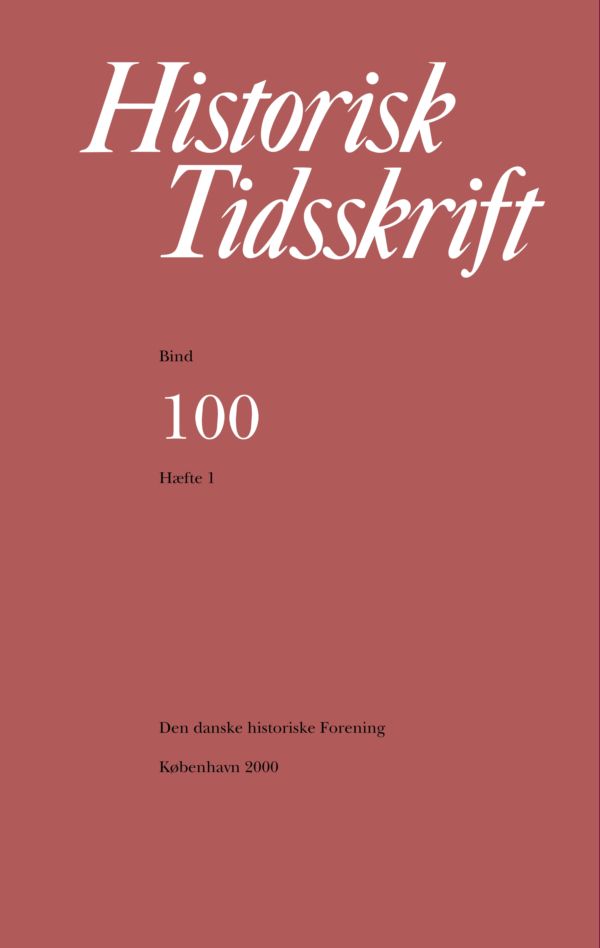Morten Fink-Jensen: Ole Borch mellem naturlig magi og moderne naturvidenskab
Resumé
Ole Borch: Natural Magic and Modern ScienceThe question of the influence of a magical an religious view of the world has played an essential role in the debate on the causes of the scientific revolution of the Seventeenth Century, In the context of this question the influence, in particular, of Hermetic and Paracelsian ideas on the development of natural science has been of notable significance. There is a long tradition for seeing modern natural science as originating solely in the pioneering work of such figures as Galileo and Bacon, whose achievements accordingly owed nothing to the magical conceptions of the world to be found in the Sixteenth and Seventeenth Centuries. A reaction to this tradition, often associated with the English historian Frances Yates, emphasised during the 1960s and 1970s that Hermetic and Paracelsian ideas on insight into nature were widespread and argued that these theories were a necessary preliminary for the creation of a new conception of science.As for Denmark it is well known that Hermeticism and Paracelsianism played a major role in the science of the Sixteenth Century, not the least for Petrus Severinus and Tycho Brahe, But Hermes and Paracelsus were also exemplars far into the Seventeenth Century, as was the case with the physician Ole Borch (Olaus Borrichius, 1626-1690), one of the period's leading Danish scientists and the first officially to be put in charge of teaching chemistry at the University of Copenhagen. Borch practised iatro-chemistry, combining medicine and chemistry, a science that almost inevitably had to begin with Paracelsian ideas. Borch's manifest reverence for the Paracelsian tradition os commonly played down in Danish historical writing, because it has been seen as incompatible with the view of Borch as a modern, empirically oriented scientist at a point so late as the latter Seventeenth Century, when it is commonly assumed that the scientific revolution was already far advanced. The neglect of this aspect of Borch's thinking results, however, in a distorted view of the man, since the Hermetic and Paracelsian tradition formed the very foundation of his chemistry and scientific medicine.This is Particularly apparent when one analyses his historical work on medicine and chemistry, Hermetis, Ægyptiorum et Chemicorum Sapientia (the Wisdom of Hermes, the Egyptians and the Chemists) from 1674. Borch presents a powerful defence of the heritage left by Hermes Trismegistos and especially Paracelsus, whom Borch sees as respectively the founder and the developer of the very scientific ideal that provided the foundation of his own work. Borch espouses the viewpoint that the way to scientific knowledge and experience is through experimental and empirical method, a method originating with Hermes and pursued by Paracelsus. He contended, moreover, that the method was entirely within the realm of natural phenomena and completely divorced form unacceptable magic forces. Borch's attempt to present Hermeticism's and Paracelsianism's magia naturalis as actually devoid of magic and based on natural processes makes him an important link in an already longstanding development towards a view of science where natural forces are more quantitative than qualitative and which culminated in the revolution of natural science. He attempted to examine nature as an object of experience, and according to Borch it was Paracelsus who within the Hermetic tradition was the initiator of that scientific ideal. Borch serves thus to confirm the thesis that Hermetic and Paracelsian natural magic could play a crucial role in the creation of the future conception of science.Translated by Michael WolfeDownloads
Publiceret
Citation/Eksport
Nummer
Sektion
Licens
Ophavsret til bidrag i Historisk Tidsskrift tilhører forfatterne og Den danske historiske Forening som udgiver af Historisk Tidsskrift. For illustrationer gælder den ophavsret, som står anført i billedteksten. Ophavsretslovens almindelige bestemmelser gælder, hvilket vil sige, at ophavsretten gælder i 70 år efter forfatterens død. Bidrag i Historisk Tidsskrift må derfor, med forbehold for en ”moving wall” på tre år, frit downloades, læses, gemmes, anvendes og citeres (med kildeangivelse) i privat og videnskabelig sammenhæng, men de må ikke helt eller delvis genudgives af tredjepart, heller ikke i redigeret form, uden tilladelse fra forfatterne og Den danske historiske Forening. Henvendelse skal i så fald rettes til Historisk Tidsskrifts redaktion på histtid@hum.ku.dk.





